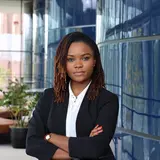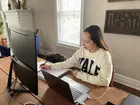
A Unique Year of Learning at Yale
Preeti Adhikary ’21 reflects on the unprecedented challenges of this academic year and the coursework and extracurricular activities that have enriched her experience in the Master of Advanced Management degree program.
Recently I completed the second week of my second—and final—term of the Master of Advanced Management degree program at the Yale School of Management. While I can’t wait to cross that finish line this May (in three and a half months!) and join the workforce again, I already feel a bit nostalgic—and very grateful. I thought this was the perfect time to pen a few thoughts to cement my experiences.
Being in school feels like standing under a huge waterfall with a tiny bucket—there is always so much to do, and so little time. There are incredible professors, peers, and speakers to learn from. There are always events to attend, tempting courses to take, and activities to take part in. It is a skill in itself to be able to choose between attractive options, let alone squeeze the time in.
The academic year 2020-2021 has been a unique time to be in school. Rotating between the hybrid and online modes of learning has meant quick adaptation, not just in terms of engagement on Zoom, but also in terms of rethinking what that experience means for me and tailoring it accordingly. It has meant scaling up virtual interactions when in-person ones were scarce. It has meant taking courses that aligned with my personal goals (apart from marketing, which I love!) and enjoying the learning process. It has meant trying out new things and having new conversations. It has also meant being comfortable with who I am and want to be.
Here are some of the categories I am focusing on in terms of my courses:
Technical Skills
I’ve talked about quitting computer science as an undergrad and how that changed the course of my life. There is a place for technical and non-technical people in the professional world, and it’s not a black-and-white world; most roles are in the gray middle zone anyway. But I have felt handicapped at times because of my lack of technical skills. Even when I did Y Combinator’s Startup School, finding a technical co-founder felt like the biggest obstacle. Not being able to “build” at least a basic version of what I wanted my product to be or feeling like I would be too dependent on engineers were a few of the reasons I haven’t jumped into entrepreneurship. I’ve often thought about joining a coding boot camp, but the timing never really worked (excuses, I know!). But all that is changing now, finally: I am taking Python for two of my classes and while I’m currently moving at the speed of a snail through Jupyter Notebook or Google Collab, I love it! I am thrilled when a code runs, and when it doesn’t, it reminds me how it’s about the journey as much as the destination in an ironic/poetic way—how you have to be super patient and detail-oriented to figure out the error. Like most things in life, coding requires you to not just look at the big picture, but also to notice the tiny details and their interdependencies. The fact that the coding is for very different courses (Social Media Analytics and Product Management) also showcases the importance of coding to non-technical roles like marketing and project manager.
Social Impact
“Purpose” is something integral to our personal and professional lives. Companies can no longer avoid creating social impact or include it simply as a checklist item. While I love mission-driven organizations and have chosen them in my career, I wanted to fully understand the inner workings of a social enterprise. What are they driven by? How do they really differ from for-profit entities? This term, I am getting firsthand experience through the Global Social Entrepreneurship course that pairs Yale students with a social enterprise in a different country. I am so excited to work on a really cool project in the ed-tech space and will share details in the future. I was lucky to take Yale Center for Customer Insights’s Consumer Insights course last fall. Working with a purpose-driven organization like Ladies Professional Golf Association was a great learning experience in terms of using the best frameworks and methodologies for tangible results. I am confident my fabulous team will be able to do the same this term.
A course I have later this term, Impact Investing, will help me to better understant the entire ecosystem better of entrepreneurs as well as investors who are trying to create and fund a better world.
Extracurricular Activities
Tsai CITY
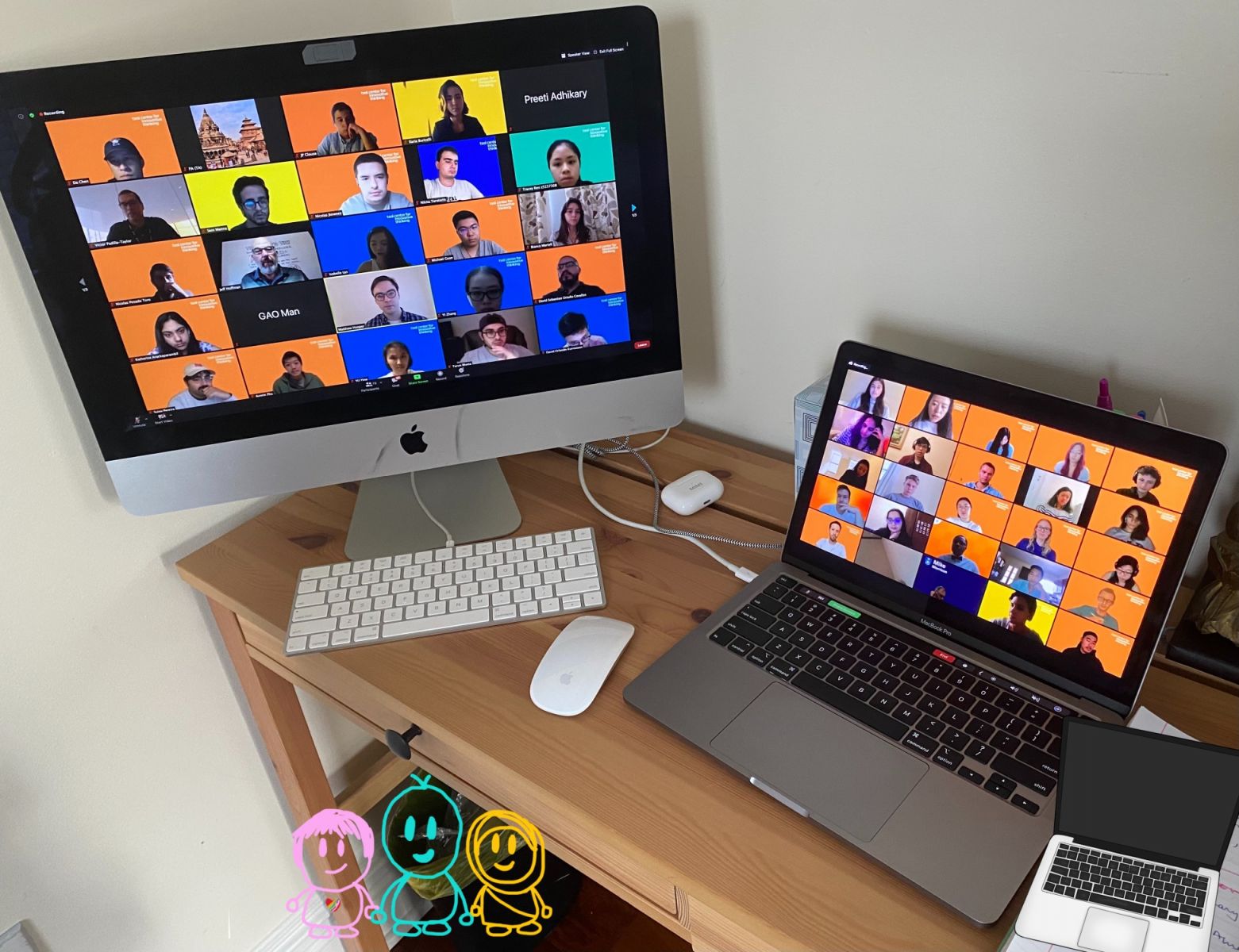 Tsai Center for Innovative Thinking at Yale (Tsai CITY) is a dynamic hub that fosters innovation through its array of programs like workshops, accelerators, and mentorship programs. Students are given opportunities to build and scale their startups and hone specific skills. As the external partnerships associate, I was involved last fall to facilitate a unique intensive titled Innovation from the Inside that paired 75 students from Yale and 16 global schools to deliver a program on corporate onnovation, along with Victor Padilla-Taylor and Matt Hooper. You can read about some of the sessions on my LinkedIn posts here, here, and here. Top-notch guests and creative elements made this an enriching experience, with an insightful podcast as a spinoff.
Tsai Center for Innovative Thinking at Yale (Tsai CITY) is a dynamic hub that fosters innovation through its array of programs like workshops, accelerators, and mentorship programs. Students are given opportunities to build and scale their startups and hone specific skills. As the external partnerships associate, I was involved last fall to facilitate a unique intensive titled Innovation from the Inside that paired 75 students from Yale and 16 global schools to deliver a program on corporate onnovation, along with Victor Padilla-Taylor and Matt Hooper. You can read about some of the sessions on my LinkedIn posts here, here, and here. Top-notch guests and creative elements made this an enriching experience, with an insightful podcast as a spinoff.
This term, the focus will be on public-private Partnerships and the intensive is slated to be better than ever, with new tools, accomplished guests, and engaging content. The application starts in a few days, but you can check out Tsai CITY here.
Women in AI USA
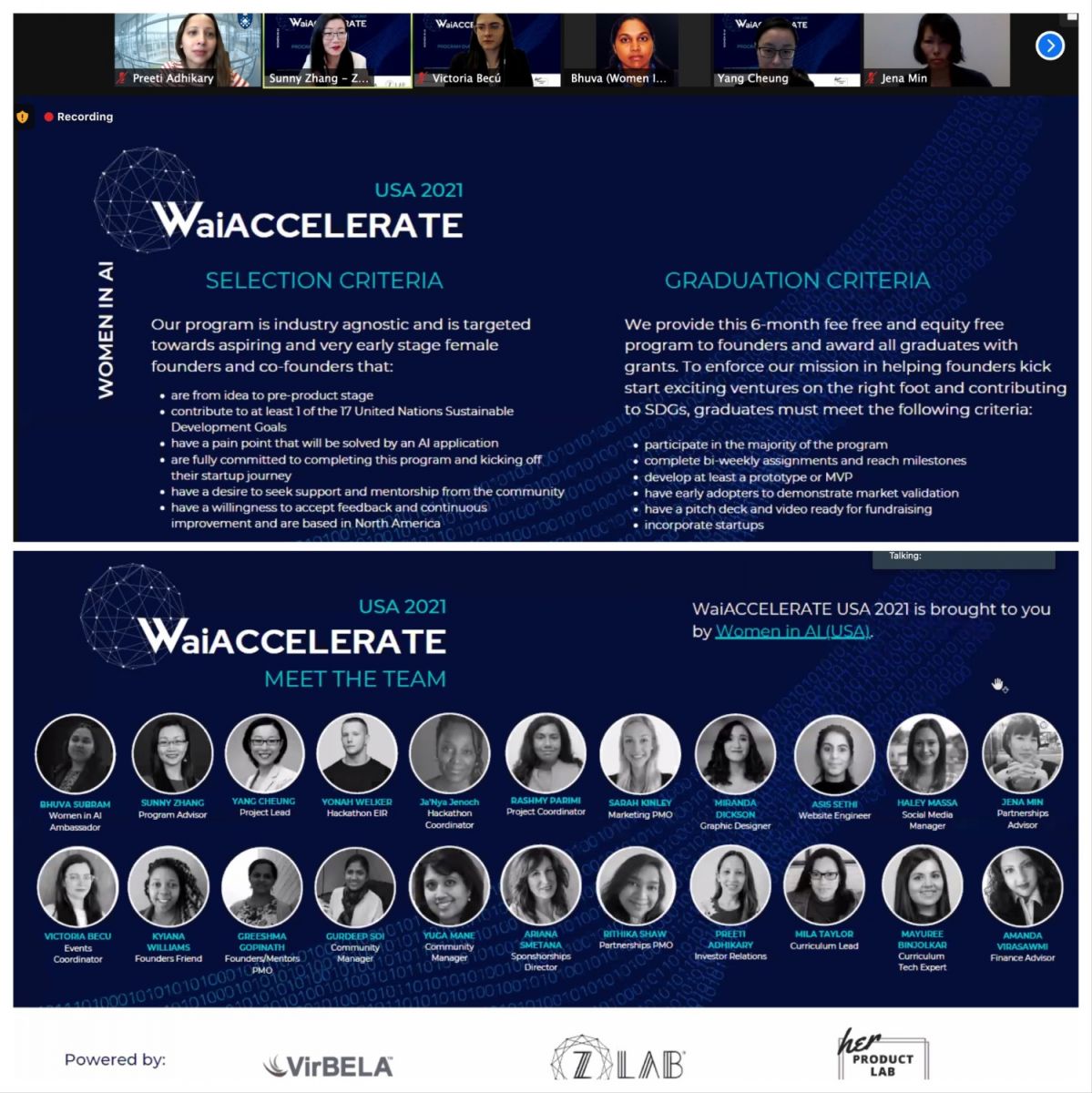 Since women empowerment and artificial intelligence are topics close to my heart, I am volunteering as an advisor for this nonprofit called Do-Tank. While there is so much that could be done, I am being intentional in my approach and am focusing on speaker outreach and investor relations. I’m focusing on speaker outreach because unless you prioritize not just the merit of an expert but their entireidentity, you end up with manels; there are tons of women and minorities who are industry leaders and trailblazers, and I’m hoping to showcase them to the world. Also, what better way to inspire and motivate female entrepreneurs than to see people like them on the stage, even if it’s a virtual one. My other focus, investor relations, is even more important because money controls the pipeline and growth of startups. My objective is to find angel investors and venture capitalists who are equally passionate about funding women entrepreneurs and to propel them further. Learn about more Women in AI USA and our cohort starting this March here.
Since women empowerment and artificial intelligence are topics close to my heart, I am volunteering as an advisor for this nonprofit called Do-Tank. While there is so much that could be done, I am being intentional in my approach and am focusing on speaker outreach and investor relations. I’m focusing on speaker outreach because unless you prioritize not just the merit of an expert but their entireidentity, you end up with manels; there are tons of women and minorities who are industry leaders and trailblazers, and I’m hoping to showcase them to the world. Also, what better way to inspire and motivate female entrepreneurs than to see people like them on the stage, even if it’s a virtual one. My other focus, investor relations, is even more important because money controls the pipeline and growth of startups. My objective is to find angel investors and venture capitalists who are equally passionate about funding women entrepreneurs and to propel them further. Learn about more Women in AI USA and our cohort starting this March here.
Case Competitions (and more)
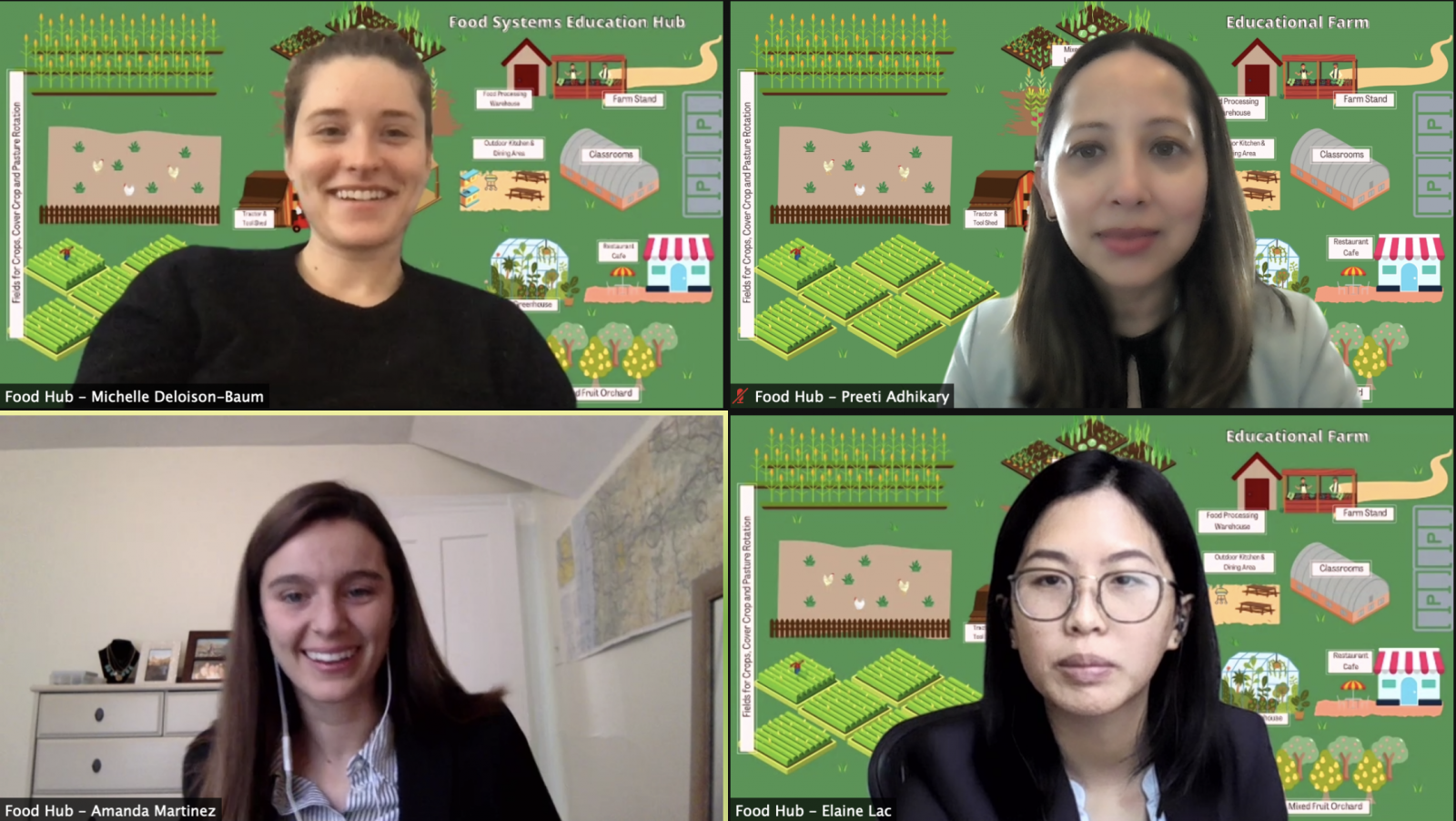 One of my personal goals was to participate in at least one case competition while in school. I missed my chance last term but got to join one in January of this year. The Hult Prize Foundation competition on the food industry was fun, especially because my team members were all women with unique backgrounds studying for different degrees at Yale. Read more about my experience here.
One of my personal goals was to participate in at least one case competition while in school. I missed my chance last term but got to join one in January of this year. The Hult Prize Foundation competition on the food industry was fun, especially because my team members were all women with unique backgrounds studying for different degrees at Yale. Read more about my experience here.
I am taking part in another case competition this month. While I’ll share more details in the future, I’m excited to work on this healthcare sub-topic that’s super relevant and important with a diverse mix of team members.
Apart from all this, I’m also trying to spearhead a few initiatives and am keeping my fingers crossed that they will be launched soon.
This blog post originally appeared on LinkedIn.


